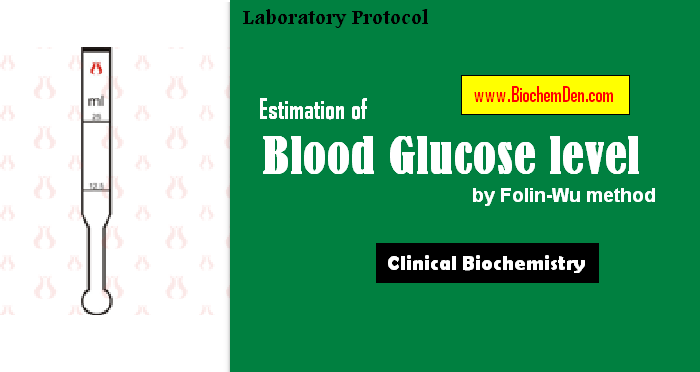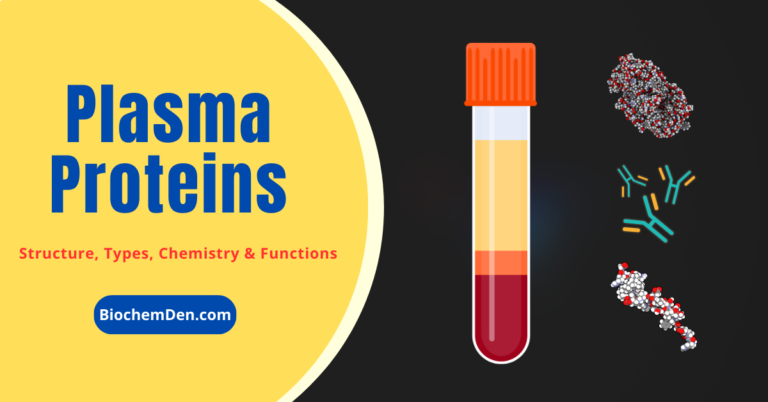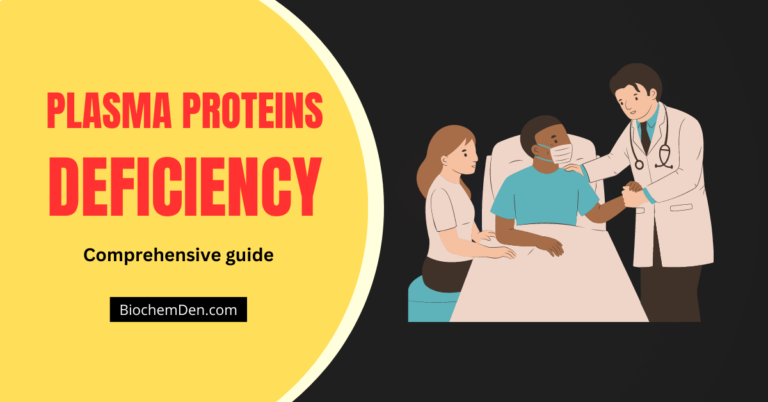Blood groups have been a topic of interest and research for many years. With advances in medical science, the knowledge and understanding of blood groups have also increased.
This article will discuss everything you need to know about blood groups, including what they are, how they are determined, their importance, and their impact on medical procedures and transfusions.

What are blood groups?
Blood groups classify blood based on the presence or absence of certain antigens on the surface of red blood cells. These antigens are proteins that help the immune system identify foreign substances and respond accordingly.
Blood groups are important in medical procedures such as transfusions and organ transplants, as the recipient’s immune system can reject the donor’s blood or organ if their blood groups are incompatible.
How are blood groups determined?
The presence or absence of specific antigens on the surface of red blood cells determines blood groups.
Here’s a breakdown of the different blood types and their corresponding antigens:
| Blood Type | Antigens Present on Red Blood Cells |
| Type A | A – antigen |
| Type B | B – antigen |
| Type AB | A and B – antigens |
| Type O | Neither A nor B – antigens |
It’s important to note that each person inherits their blood type from their parents through their genes. Different variations of the same gene determine the A and B antigens, while a different gene causes the O blood type.
The presence or absence of the Rh factor, another type of antigen, further determines the blood type as either Rh-positive or Rh-negative. In summary, a person’s blood group is determined by the combination of antigens present in their red blood cells and their Rh factor status.
Different types of blood groups
Blood groups refer to the different types of antigens on the surface of red blood cells. The most commonly known blood groups are A, B, AB, and O.
The presence or absence of specific antigens in the red blood cells determines each blood group.
ABO Blood Group System
The ABO blood group system is the most well-known system, and it classifies blood into four major types:
- Blood Group A: People with blood group A have A antigens on the surface of their red blood cells and B antibodies in their plasma.
- Blood Group B: People with blood group B have B antigens on the surface of their red blood cells and A antibodies in their plasma.
- Blood Group AB: People with blood group AB have both A and B antigens on the surface of their red blood cells and no antibodies in their plasma.
- Blood Group O: People with blood group O have no A or B antigens on the surface of their red blood cells and both A and B antibodies in their plasma.
Rh Blood Group System
The Rh blood group system is another major one that is determined by the presence or absence of the Rh factor.
The Rh factor is a protein either present (+) or absent (-) on the surface of red blood cells. Therefore, people can be classified as either Rh positive or Rh negative.
If a person is Rh-positive, they have the Rh factor protein in their red blood cells. If a person is Rh-negative, it means they do not have the Rh factor protein in their red blood cells.
Combining the ABO and Rh Blood Group Systems
The ABO and Rh blood group systems can be combined to form a person’s blood type. For example, a person who is blood type A+ has A antigens and Rh factor protein on the surface of their red blood cells.
Blood Group Distribution
- The distribution of blood groups varies across different populations. The most common blood group in the United States is O, followed by A, B, and AB.
- The Rh factor is present in approximately 85% of the population, making Rh-positive the most common blood type.
- Blood groups are classified based on the presence or absence of specific antigens on the surface of red blood cells.
- The ABO and Rh blood group systems, are the two major blood group systems, and they can be combined to form a person’s blood type.
- Knowing your blood type is important for blood transfusions, as receiving the wrong blood type can cause serious health complications.
Rh factor and its significance
The Rh factor is another type of antigen found on the surface of red blood cells. Its presence or absence further categorizes blood types as either Rh-positive or Rh-negative.
Here’s a breakdown of the significance of the Rh factor:
| Blood Type | Rh Factor | Can Receive Blood From |
| Rh-positive | + | Rh-positive and Rh-negative |
| Rh-negative | – | Rh-negative only |
Rh Incompatibility and Its Effects
- If a person with Rh-negative blood is given Rh-positive blood, their immune system can produce antibodies against the Rh antigen. It can cause a severe transfusion reaction, which can lead to the destruction of red blood cells, anemia, and other complications.
- In pregnancy, if a woman with Rh-negative blood carries a fetus with Rh-positive blood, the baby’s blood can mix with the mother’s blood during delivery or other medical procedures, causing the mother to develop Rh antibodies. It can cause complications in subsequent pregnancies if the baby’s blood type is also Rh-positive.
- To prevent these complications, a medication called Rh immune globulin (RhIg) is given to Rh-negative women during pregnancy and after delivery or any other procedure that can cause blood mixing. This medication prevents the formation of Rh antibodies and reduces the risk of complications in future pregnancies.
Understanding Rh is crucial in blood transfusions and pregnancy to prevent potentially life-threatening complications.
Blood group compatibility and transfusions
Blood group compatibility is a crucial aspect of blood transfusions. Understanding the compatibility of different blood groups can help to prevent severe reactions and complications. Here are some key points to consider:
Blood group compatibility matrix:
| Recipient’s Blood Group | Can receive from | Cannot receive from |
| Type A | Type A or Type O | Type B or Type AB |
| Type B | Type B or Type O | Type A or Type AB |
| Type AB | Type A, Type B, Type AB, or Type O | None |
| Type O | Type O | Type A, Type B, or Type AB |
- People with type O blood are considered universal donors because they can be given to people with any blood group.
- People with type AB blood are considered universal recipients because they can receive blood from any blood group.
- Incompatible blood transfusions can cause severe reactions such as fever, chills, hives, and in severe cases, kidney failure or even death.
It is important to note that blood group compatibility is not the only factor considered in blood transfusions. Other factors, such as the Rh factor, the donor’s antibody status, and the recipient’s immune system, also play a role in determining compatibility.
Blood banks and healthcare professionals consider these factors when selecting donors for transfusions to ensure the recipient’s safety.
Understanding blood group compatibility is crucial in preventing severe reactions and complications in blood transfusions. Healthcare professionals carefully consider multiple factors when selecting donors for transfusions to ensure the recipient’s safety.
Blood group antigens and antibodies
Blood group antigens and antibodies are vital in determining blood group compatibility. Antigens are proteins present on the surface of red blood cells, while antibodies are proteins found in the plasma that can attack foreign antigens.
The following table summarizes the different blood group antigens and antibodies:
| Blood Group | Antigens on RBCs | Antibodies in Plasma |
| A | A-antigen | Anti-B antibody |
| B | B-antigen | Anti-A antibody |
| AB | A and B antigens | No antibodies |
| O | No antigens | Anti-A and Anti-B antibodies |
Some important points to note:
- People with type A blood have only A antigens on their red blood cells, and their plasma contains anti-B antibodies.
- People with type B blood have only B antigens on their red blood cells, and their plasma contains anti-A antibodies.
- People with type AB blood have both A and B antigens on their red blood cells but no antibodies in their plasma.
- People with type O blood have no antigens on their red blood cells but both anti-A and anti-B antibodies in their plasma.
- In a blood transfusion, matching the donor’s and recipient’s blood types is crucial to avoid severe reactions.
- If a person receives blood with foreign antigens, their immune system may produce antibodies against them, causing a severe transfusion reaction.
Importance of blood groups in medical procedures
Blood groups play a crucial role in various medical procedures. Let’s discuss their importance in detail:
Blood transfusions:
- A person can receive blood only from a donor with the same or a compatible blood group.
- A mismatch can lead to a severe reaction, including the destruction of red blood cells, which can lead to anemia and other complications.
Organ and bone marrow transplants:
- For a successful transplant, the blood group of the donor and recipient must match.
- A mismatch can lead to the rejection of the transplanted organ or tissue.
Identification of paternity:
- Blood groups can be used to identify paternity in cases where DNA testing is not available.
To understand the compatibility of blood groups, it is essential to know the different types of blood groups and their respective antigens and antibodies.
Here’s a table that shows the blood group antigens and antibodies:
| Blood Group | Antigens on Red Blood Cells | Antibodies in Plasma |
| A | A | Anti-B |
| B | B | Anti-A |
| AB | A and B | None |
| O | None | Anti-A and Anti-B |
Blood groups, including transfusions, transplants, and paternity identification, are essential for successful medical procedures. It is crucial to match the blood groups of the donor and recipient to prevent any adverse reactions.
How to find out your blood group
There are several ways to find out your blood group:
Blood test:
- The most common and accurate method to determine your blood group is to get a blood test done at a laboratory or hospital. A small blood sample is taken and tested to identify your blood group.
Blood donation:
- When you donate blood, your blood group is tested as a part of the donation process. The blood donation center will inform you of your blood group after completing the test.
Home testing kits:
- Some home testing kits are available that claim to determine your blood group. These kits are usually inexpensive and easy to use but may not be as accurate as laboratory testing. It is recommended to confirm the results with a healthcare professional.
Here is a table summarizing the methods to determine your blood group:
| Method | Description |
| Blood test | A laboratory or hospital test to determine the blood group |
| Blood donation | Blood group testing is a part of the donation process |
| Home testing kit | Inexpensive and easy to use, but may not be accurate |
Blood group incompatibility during pregnancy
Blood group incompatibility during pregnancy can lead to complications, especially if the mother’s blood group is Rh-negative and the baby’s blood group is Rh-positive.
It can cause the mother’s immune system to produce antibodies against the Rh factor, which can attack the baby’s red blood cells.
This condition is known as hemolytic disease of the newborn (HDN) or erythroblastosis fetalis. Here are some key points to keep in mind:
Causes:
- Rh incompatibility between the mother and baby’s blood group is the most common cause of HDN
- Other blood group incompatibilities, such as ABO incompatibility, can also cause HDN but are less common
Symptoms:
- In mild cases, there may be no symptoms
- In severe cases, the baby can develop anemia, jaundice, and other complications
Diagnosis:
- Blood tests can be done during pregnancy to determine if the mother is at risk for HDN due to blood group incompatibility.
- Ultrasound scans can also monitor the baby’s health during pregnancy.
Treatment:
- Treatment may include blood transfusions to replace the baby’s damaged red blood cells.
- Intrauterine transfusions may be necessary in severe cases, where the blood transfusion is done directly to the baby while still in the womb.
- In some cases, early baby delivery may be necessary to prevent further complications.
Prevention:
- Rhesus (Rh) factor sensitization can be prevented by administering Rh immune globulin (RhIg) to the mother during pregnancy and after delivery, which prevents the mother’s immune system from producing antibodies against the baby’s Rh factor.
Blood group incompatibility during pregnancy, particularly Rh incompatibility, can lead to serious complications for the baby. Early diagnosis and treatment can help to prevent or minimize these complications.
Genetic inheritance of blood groups
Blood groups are inherited from parents through genes, and passed down from generation to generation. The ABO blood group system is determined by the presence or absence of the A and B antigens on the surface of red blood cells, while the presence or absence of the D antigen determines the Rh factor.
In the ABO system:
- The A gene codes the A antigen
- The B gene codes the B antigen
- The O gene codes the O antigen
Here’s how the genetic inheritance of blood groups works:
- A person with type A blood has either two A genes or one A gene and one O gene
- A person with type B blood has either two B genes or one B gene and one O gene
- A person with type AB blood has one A gene and one B gene
- A person with type O blood has two O genes
The inheritance of the Rh factor is a bit different:
- A person who is Rh-positive has at least one copy of the D gene
- A person who is Rh-negative has two copies of the d gene
Inheritance of Blood Group from Parents
The following table shows the possible blood group combinations that can result from the inheritance of genes from parents.
| Parent 1 | Parent 2 | Possible Blood Groups for Children |
| Type A | Type A | Type A, Type O |
| Type A | Type B | Type A, Type B, Type AB, Type O |
| Type A | Type AB | Type A, Type B, Type AB |
| Type A | Type O | Type A, Type O |
| Type B | Type B | Type B, Type O |
| Type B | Type AB | Type A, Type B, Type AB |
| Type B | Type O | Type B, Type O |
| Type AB | Type AB | Type A, Type B, Type AB |
| Type AB | Type O | Type A, Type B |
| Type O | Type O | Type O |
Note: This is a simplified version of inheritance, not a complete representation of all possible combinations.
Blood group and personality traits
Studies have been conducted on the relationship between blood groups and personality traits. However, the evidence needs to be more conclusive, and further research is needed to confirm these findings.
Here are some of the personality traits associated with each blood group:
Blood Group A:
- Perfectionists
- Sensitive
- Cautious
- Loyal
- Responsible
Blood Group B:
- Outgoing
- Creative
- Independent
- Strong-willed
- Unpredictable
Blood Group O:
- Confident
- Assertive
- Optimistic
- Ambitious
- Strong-willed
Blood Group AB:
- Complex
- Creative
- Rational
- Reserved
- Independent
It is important to note that these personality traits are not universal and can vary from person to person.
Blood groups and diseases
Blood groups are important for medical procedures and can also be associated with some diseases. Here are some examples of diseases that are more common in certain blood groups:
Blood group A:
- People with blood group A may have a higher risk of developing certain types of cancer, such as stomach and pancreatic cancer.
- Studies have also suggested that people with blood group A may have a higher risk of developing cardiovascular diseases, such as coronary heart disease and stroke.
Blood group B:
- People with blood group B may have a higher risk of developing certain autoimmune diseases, such as multiple sclerosis and lupus.
- Studies have also suggested that people with blood group B may have a higher risk of developing infections, such as Helicobacter pylori and E. coli infections.
Blood group O:
- People with blood group O may have a lower risk of developing cardiovascular diseases, such as coronary heart disease and stroke.
- Studies have also suggested that people with blood group O may have a lower risk of developing certain types of cancer, such as pancreatic and ovarian cancer.
- However, people with blood group O may have a higher risk of developing peptic ulcers caused by Helicobacter pylori infections.
Blood group AB:
- People with blood group AB may have a higher risk of developing certain types of cancer, such as ovarian and pancreatic cancer.
- Studies have also suggested that people with blood group AB may have a higher risk of developing cognitive impairment and memory loss later in life.
It is important to note that these associations are not definitive, and more research is needed to understand the relationship between blood groups and diseases fully.
The Future of blood group research
Blood groups are classifications of blood-based on the presence or absence of certain antigens on the surface of red blood cells. These antigens can trigger immune reactions when transfused to incompatible recipients.
There are more than 300 known blood group antigens, but only a few are clinically significant for transfusion purposes. The most important ones are the ABO and Rh systems, which account for most of the newborn’s transfusion reactions and hemolytic disease.
Blood group research is a dynamic and evolving field that aims to improve blood transfusion and transplantation safety and efficacy.
Some of the current and future directions of blood group research are:
- Developing new blood typing and antibody screening methods that are faster, more accurate, and more cost-effective.
- Identifying novel blood group antigens and antibodies that may cause transfusion complications or affect organ compatibility.
- Exploring the genetic and molecular basis of blood group variation and its implications for health and disease.
- Investigating the role of blood group antigens in immune modulation, infection, inflammation, and cancer.
- Developing new strategies for preventing and treating the hemolytic disease of the newborn and other alloimmune disorders.
- Creating universal or synthetic blood products that can be transfused to anyone without the risk of immunization or reaction.
Frequently Asked Questions (FAQs)
Can blood groups change over time?
No, blood groups do not change over time. Blood group is determined by the genes we inherit from our parents and remains the same throughout our lives. However, in some rare cases, a person’s blood typing results may appear to change due to errors in testing or underlying medical conditions.
Is it possible for a person to have more than one blood group?
No, a person can’t have more than one blood group. A person’s blood type is determined by the antigens on the surface of their red blood cells, and each individual can only have one set of antigens. However, some rare medical conditions can cause discrepancies in blood typing results, leading to confusion and mislabeling of blood types.
What happens if you receive a blood transfusion with the wrong blood group?
If you receive a blood transfusion with the wrong blood group, your immune system can attack the transfused blood cells, leading to a potentially life-threatening reaction. It is important to match the donor’s blood type with the recipient before a transfusion.
Are there any foods that can affect your blood group?
No, there are no foods that can affect your blood group. Your genes determine your blood group and are not affected by your diet.
Can a child have a different blood group than their parents?
Yes, a child can have a different blood group than their parents. It is because each parent contributes one of their two alleles for each blood group gene, and the combination of these alleles determines the child’s blood group.
Can your blood group affect your health?
Yes, your blood group can affect your health in some ways. For example, people with blood group A are more at risk for heart disease, while those with blood group O are less likely to develop certain types of cancer. Additionally, your blood group can affect your response to certain medications and your risk of developing certain diseases.
Conclusion
Blood groups are important to human biology and medical science. Understanding blood groups can help prevent complications during medical procedures such as transfusions and organ transplants. It can also help identify paternity and predict certain health risks. While there is still much to learn about blood groups, advances in research and technology are leading to a better understanding of this fascinating topic.
So if you haven’t already, find out your blood group and learn more about this fascinating aspect of your biology. And remember, donating blood can save lives, so consider donating blood to help those in need.
Multiple Choice Questions on Blood Grouping
Which of the following is not a blood group system?
a) ABO
b) Rh
c) MNS
d) DNA
Which blood group is considered the universal donor?
a) A
b) B
c) AB
d) O
Which blood group is considered the universal recipient?
a) A
b) B
c) AB
d) O
Which blood group is known as the “rarest”?
a) A
b) B
c) AB
d) O
Which blood group system is named after the monkey species where it was first discovered?
a) ABO
b) Rh
c) MNS
d) Lewis
Which blood group system has more than 600 antigens?
a) ABO
b) Rh
c) MNS
d) Duffy
Which blood group system is inherited separately from the ABO system?
a) Rh
b) Lewis
c) Duffy
d) Kell
Which blood group system is important in the prevention of hemolytic disease in the newborn?
a) ABO
b) Rh
c) MNS
d) Kidd
Which blood group system is responsible for the presence or absence of the H antigen?
a) ABO
b) Rh
c) Kell
d) Duffy
Which blood group is most commonly found in the population?
a) A
b) B
c) AB
d) O
Which blood group system is associated with the Lutheran blood group?
a) ABO
b) Rh
c) MNS
d) Lewis
Which blood group is associated with an increased risk of heart disease?
a) A
b) B
c) AB
d) O
Which blood group system is named after the patient where it was first discovered?
a) ABO
b) Rh
c) Lewis
d) Kidd
Which blood group system is associated with the P antigen?
a) ABO
b) Rh
c) MNS
d) Duffy
Which blood group system is associated with the presence or absence of the Le(a) and Le(b) antigens?
a) ABO
b) Lewis
c) Duffy
d) Kell
Discover more from Biochemistry Den
Subscribe to get the latest posts sent to your email.






